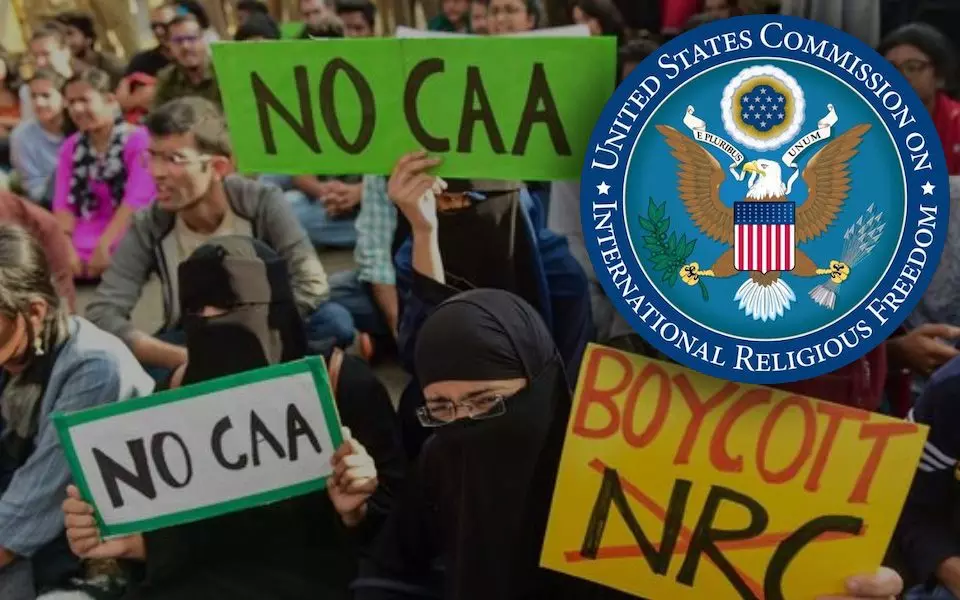
Explained: What is Citizenship Amendment Act (CAA)?
The Centre has notified rules for implementation of the act five years after it became a legislation

The Centre on Monday (March 11) notified the rules for the implementation of the contentious Citizenship(Amendment) Act, 2019 (CAA), paving the way for granting of citizenship to undocumented non-Muslim migrants from Pakistan, Bangladesh and Afghanistan.
The decision, which comes ahead of the Lok Sabha polls, fulfils a crucial poll promise of the ruling BJP, which had been stalling the law's implementation due to several concerns.
What is CAA?
The CAA was formulated after amending the Citizenship Act of 1955.
The new legislation aims to provide Indian citizenship to persecuted religious minorities, including Hindus, Sikhs, Jains, Buddhists, Parsis, and Christians from Pakistan, Afghanistan, and Bangladesh who entered India by December 31, 2014.
The Narendra Modi government introduced a bill to amend the citizenship law 2016. Although it was passed by the Lok Sabha, it couldn’t be passed in the Rajya Sabha due to widespread protests in some states.
The Citizenship (Amendment) Bill, 2016 was introduced in the Lok Sabha on July 19, 2016. The bill was referred to a Parliamentary Committee which submitted its report on January 7, 2019.
The Bill was passed in the Lok Sabha on January 8, 2019, but lapsed as the lower house was dissolved soon after.
It was re-introduced by Union Home Minister Amit Shah after the BJP-led NDA government returned to power in 2019. The Bill was passed in the Lok Sabha on December 10, 2019 and in the Rajya Sabha a day later.
The law subsequently got the president's assent, but could not come into effect as the government didn’t notify its rules.
Why is CAA opposed?
CAA does not consider other persecuted minorities like Rohingya Muslims, Sri Lankan Tamils, Uighur Muslims and Ahmadiyas from other neighbouring countries. It is also being seen as an attempt to discriminate against Muslims.
The legislation sparked nationwide protests between December 2019 and March 2020, in which at least 60 people lost their lives. The protests were widespread in North East where the tribal population fears the influx of foreigners that the law would allow, would create a demographic imbalance.
Those who protest the legislation also argue that it violates the 1985 Assam Accord which mandates the deportation of foreigners who entered the state after March 24, 1971 irrespective of their religion.
What delayed CAA’s implementation?
Even though it has been five years since it was passed, the Centre has taken no active steps to implement it, mostly because of the widespread protests against the legislation in the northeast.
The party delayed implementing the legislation mostly because of three reasons – strong objection from its Assam unit, apprehension over a possible backlash in Bengal and above all Bangladesh’s reservation over the law.
What are the laws governing non-citizens till now?
Foreigners Act, 1946
Passports Act, 1967
India’s stand on refugees:
India is not a party either to the 1951 UN convention of Refugees or its 1967 Protocol. Hence, the country is not bound by the principle of non-refoulment, which states that a host country receiving religiously persecuted refugees is obligated to give protection to the refugees.
It is an internationally accepted norm which even non-parties abide by. But, India does not have legislation for refugees.
Has India ever received refugees?
India has received waves of refugees from neighboring countries at different times, like 1947 (Partition), 1959 (Buddhists from Tibet), and 1971 (Indo-Pak war), among others.
During the Chinese invasion of Tibet in 1959, India granted asylum to the spiritual leader Dalai Lama and other Tibetan refugees to legally settle in India.
How have successive governments dealt with the refugee problem?
With no legislation in place, the government did use temporary solutions to deal with the issue. CAA is seen as an attempt to deal with the refugee problem, legally. CAA offers citizenship to religiously persecuted Hindu, Christian, Parsi, Jain, Sikh and Buddhist minorities from Pakistan, Afghanistan and Bangladesh in an attempt to tackle refugees and provide a legal channel for asylum.

